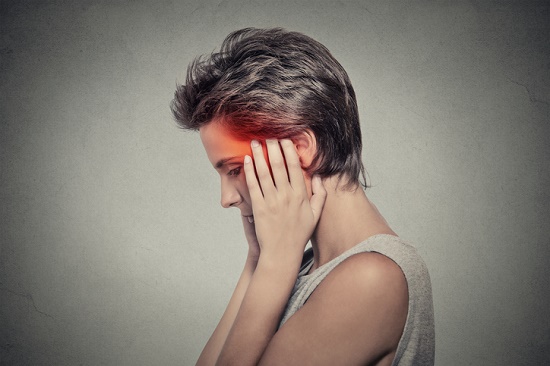
Though it’s true that there is at this time no scientifically-established method to cure tinnitus, researchers are hard at work to identify one. In the meantime, a range of tinnitus therapy options exist that can provide substantial relief.
Think of it in this way. If you have a headache, you take Tylenol regardless of the fact that it doesn’t “cure” your headache. Pain relievers simply make the pain diminish into the background to ensure that it doesn’t affect your day. In the same way, tinnitus therapy can help decrease the severity of symptoms so that your tinnitus has minor impact on your daily life.
Seeing that everyone reacts to tinnitus in a different way, there’s no one-size-fits-all treatment. You’ll need to work with your provider to uncover the approach that works best for you.
Here are some of those options.
Tinnitus Treatment Options
If you suffer from tinnitus, you’ll want to explore the following treatment options with your hearing care or healthcare provider.
Treatment of the underlying condition
While the majority of instances of tinnitus are not curable—and are the result of hearing loss or other non-reversible injury—certain cases are triggered by an underlying physical ailment. You’ll want to rule these out before seeking other treatment modalities.
Possible physical causes of tinnitus include jaw joint issues (temporomandibular joint, or TMJ dysfunction), too much earwax or other obstructions in the ear canal, head and neck injuries, and side effects to specific medications.
General Health And Wellness
The intensity of tinnitus symptoms can vary depending on overall health. Taking steps to improve general well-being is, consequently, one thing tinnitus sufferers can get started on immediately to lessen the intensity level of symptoms.
Each person is unique, and what works well for someone else might not work for you. The purpose is to try out various activities to learn what is most effective.
Activities that have revealed promise include instituting a healthy diet, getting lots of physical exercise, meditating, and engaging in activities like bicycling, which can mask the sounds of tinnitus.
Hearing Aids
Tinnitus is commonly associated with hearing loss and hearing injury. In reaction to diminished stimulation from external sound, the brain goes through maladaptive changes that lead to the perception of tinnitus.
By boosting the amount of external sound, hearing aids can help mask the tinnitus, making the sounds of tinnitus less detectable. Hearing aids additionally provide increased sound stimulation to the brain, which is presumed to be neurologically favorable.
Sound Therapies
Sound therapy is simply the delivery of sound in the form of white noise, pink noise, or nature sounds to decrease the perceived burden or severity of tinnitus.
Sound therapy operates by masking the tinnitus and also by training the brain to reclassify the sounds of tinnitus as insignificant. This dual effect can lessen the short and long-term degree of tinnitus.
Sound therapy can be supplied through special tabletop gadgets, but also through portable multimedia devices and even through hearing aids. Medical-grade sound therapy incorporates tailored sounds that match the pitch of the individual’s tinnitus for optimal results.
Behavioral Therapy
Remember that tinnitus is the perception of sound in the brain when no external sound is present. The ailment is, therefore, very subjective, and each person responds a unique way.
In fact, whether or not the person perceives tinnitus as life-altering or as no-big-deal is largely as a consequence of emotional reactions and not to the loudness or pitch of the tinnitus. That’s why cognitive/behavioral approaches to tinnitus therapy have been proven to be very effective.
Several techniques are available, including Mindfulness-Based-Stress-Reduction (MBSR) and Tinnitus-Retraining-Therapy (TRT), which combines cognitive-behavioral-therapy with sound therapy.
Drug Therapies
Although there are no current FDA-approved medications for tinnitus, antianxiety and antidepressant prescriptions are regularly used to treat the behavioral responses to tinnitus. These drugs do not appear to influence tinnitus itself, but may provide much-needed relief if deemed necessary by your doctor.
Experimental Therapy
The search for a tinnitus cure is ongoing. A number of experimental therapies are in development or testing and new approaches become available each year. If your tinnitus is severe, and you’ve realized little benefit from existing therapies, you could be a candidate for one of these leading edge treatment options.
Check out the Experimental Therapies page at the American Tinnitus Association website for additional details.
Obtain Relief For Your Tinnitus
Tinnitus is being aggressively studied, with brand new findings and prospective treatment methods reported every year. Even now, you can find several encouraging treatments that, while not providing a cure, can supply significant relief. You owe it to yourself to inquire about these options, stay positive and persistent in your tinnitus care, and work with your provider to adjust your treatment plan for the greatest results.